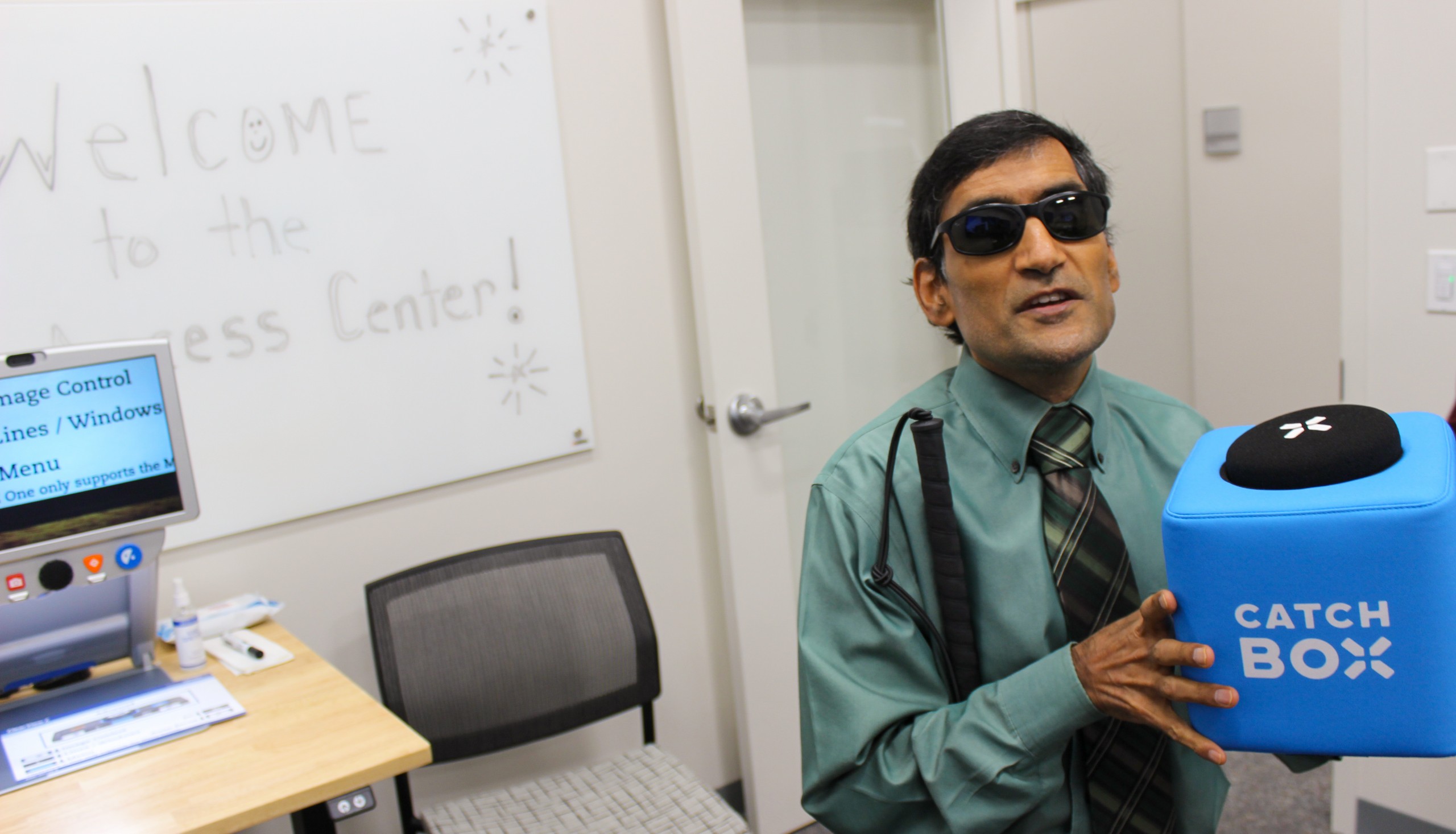Accessibility and Accommodations
 In a world where 25% of the population has a disability, disability talent empowers diplomacy! At the negotiating and policy-making table, people with disabilities contribute the insights gained from the lived experiences of a wide range of apparent and non-apparent disabilities, neurodiverse perspectives, and knowledge of the 300 sign languages in the world as well as protactile languages based on touch. Disability talent makes our foreign policy stronger, smarter, and more innovative. For these reasons, the U.S. Department of State is committed to recruiting and retaining talented individuals with disabilities, both apparent and non-apparent.
In a world where 25% of the population has a disability, disability talent empowers diplomacy! At the negotiating and policy-making table, people with disabilities contribute the insights gained from the lived experiences of a wide range of apparent and non-apparent disabilities, neurodiverse perspectives, and knowledge of the 300 sign languages in the world as well as protactile languages based on touch. Disability talent makes our foreign policy stronger, smarter, and more innovative. For these reasons, the U.S. Department of State is committed to recruiting and retaining talented individuals with disabilities, both apparent and non-apparent.
Department employees with disabilities proudly represent America as members of the Foreign and Civil Service, as Locally Employed staff, and as contractors. All serve with distinction at Embassies, Consulates, and State offices around the world and across the United States. Our new Disabilities Powering Diplomacy webpage features Department employees with disabilities and highlights their contributions to a more secure, prosperous, and democratic world.
The Department works to ensure a true sense of inclusion and belonging for its employees with disabilities by encouraging active allyship (see video). Our Bureau of Global Talent Management includes an Office of Accessibility and Accommodations that works with employees with disabilities to ensure they are fully integrated into the Department and have the tools they need to succeed.
Reasonable Accommodations
Reasonable accommodations span a wide range of potential services, technologies, and/or workplace modifications. Both job applicants and current employees can request accommodations such as assistive technology, sign language interpreting services, and support specialists, or readers. Applicants can also request interview or assessment practice time, prior to an interview or assessment, with accessibility providers.
At the State Department, reasonable accommodations are individualized, and employees are central to the interactive reasonable accommodation process. Employees and employment applicants with disabilities receive reasonable accommodations both domestically and abroad for both work-related travel and training, consistent with applicable law.
To learn more about reasonable accommodations, contact the Office of Accessibility and Accommodations (OAA) at OAA@state.gov. OAA’s Disability and Reasonable Accommodations Division (DRAD) reviews all accommodation requests. The reasonable accommodation process involves an interactive and collaborative dialogue between OAA/DRAD, the requesting individual, and the individual’s hiring manager.
Schedule A Non-Competitive Hiring
To streamline the hiring of qualified persons with disabilities seeking Civil Service positions, the federal government has a dedicated non-competitive hiring authority, commonly referred to as Schedule A, set forth in 5 CFR 213.3102(u). The Department of State’s Selective Placement Program Coordinator (SPPC) acts as a liaison between qualified applicants with disabilities, HR personnel, and hiring managers for Civil Service positions.
See more information on:
ecfr.gov/current/title-5/chapter-I/subchapter-B/part-213
Schedule A non-competitive hiring at the Department of State – Zip file of 5 documents – Schedule A -A Hiring Authority, Schedule A Handout, SPPC Handout, 2 sample Schedule A Letters
Schedule A government-wide page by the Office of Personnel Management (OPM)
